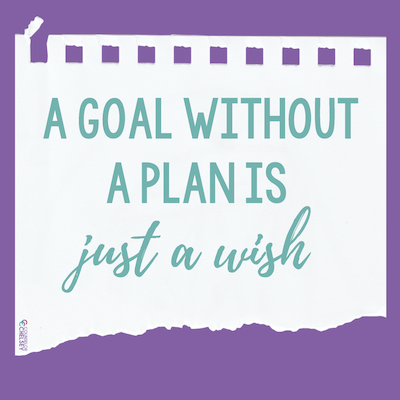Individual Counseling: 3 Tips School Counselors Can Use For Effective Lessons
As a school counselor, individual counseling can be a challenge. After classroom lessons, small groups and other duties, individual lessons can feel like an afterthought - like all of your time and brain power have been used up already and there’s nothing left to give.
Thankfully, it doesn’t have to be this way. With the right systems and strategies in place, you can ensure that your individual lessons aren’t falling through the cracks. Below, you'll find 3 individual counseling tips that will help you feel focused and prepared as you guide your students to success!
Tip #1: Make A Plan For Individual Counseling Lessons
Making a plan and sticking to it has been hard for me when it comes to individual counseling. I often found myself trying to put out whatever fire was currently happening, which resulted in a lot of changing directions and very little progress. Without a clear goal and plan, it was hard to be effective.
Eventually, I learned to set specific goals before beginning the sessions, and to think about the activities, lessons, etc. that would help the student achieve the goal. This provided clarity for me and for the student, which made such a huge difference.
Here are some tips for making plans in individual counseling:
Start with the end in mind - what does the student hope will be different in 3 weeks
Plan activities and lessons that will help the student meet that goal
Think about how you’ll know whether or not the student has met the goal
Of course, there were still times when the students experienced new challenges or situations that needed to be addressed. In those situations, it can be helpful to dedicate a few minutes at the beginning of each session to review any new things that have come up since the last time you met. This allows you to help the student process what is going on in their lives, while still focusing on the initial goals.
Tip #2: Provide Take Home Materials
Kids are forgetful. Have you ever asked a kid what they learned at school, just to be met with the classic response of “nothing?” Make your individual counseling sessions more memorable by doing activities that include things the students can take home with them, such as crafts, visual aids, etc. This can increase the effectiveness of your lessons, as it gives the students something to refer to at home, and is also a great way to let the families in on what the student is working on.
Some of my favorite activities that students can take home are:
Coloring sheets
Posters, charts or visual aids
These are fun for the students, plus they have something that they can use as a reminder of all the great things they learned during their time with you!
Tip #3: Don’t Go At It Alone
I am ALL about collaboration. Kids don’t exist in a vacuum, so it’s important that we collaborate with the other adults in the child’s life. It can seem like this isn’t possible in an individual setting, especially while respecting student confidentiality. However, there are still many ways to involve other adults in your work, even if they aren’t actually in the sessions.
Some ideas include:
Talking to families and classroom teachers about interventions they can use to help the students
Collaborating with any outside services or therapists that the student works with
Referring to outside services when the child needs more support than what you can provide
Working together with other adults in the child’s life will make success more likely for you and the student. Below, you’ll be able to sign up for free behavior cheat sheets that you can share with families and classroom teachers as you work together to support students!
Individual counseling can be a great way to give students specialized support that they need. Hopefully, these 3 tips will help you feel more confident in this aspect of your job as you support kids in a 1:1 setting.









